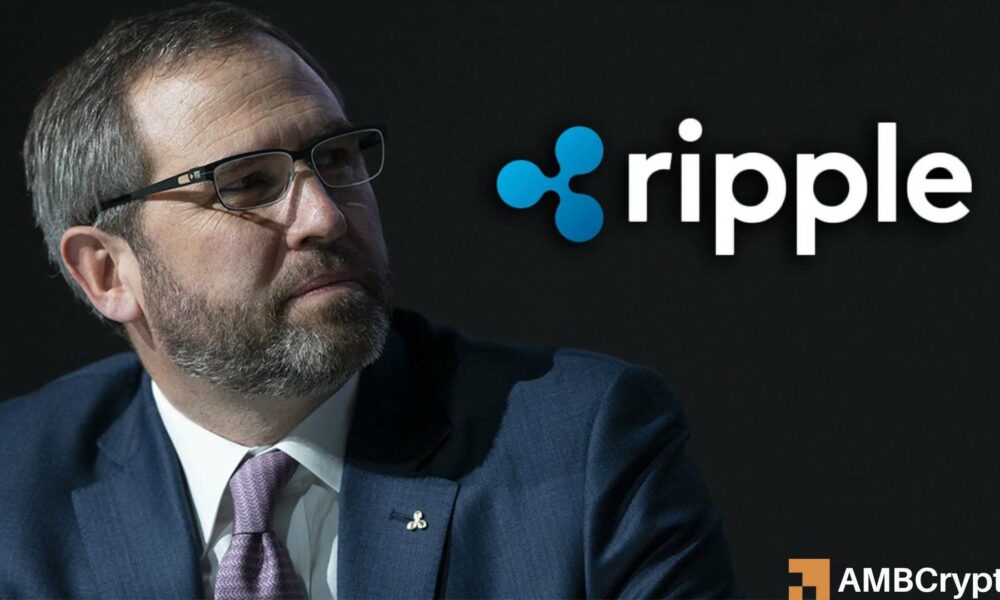Ripple and Linqto: Unraveling the Controversy Surrounding Private Shares
Ripple, a prominent player in the cryptocurrency landscape, has once again found itself mired in legal complexities involving Linqto, the Securities and Exchange Commission (SEC), and the Department of Justice (DoJ). As the situation continues to unfold, it’s essential to clarify Ripple’s involvement and the implications for its investors, particularly in light of new information regarding private shares and their ownership.
The Legal Landscape: Ripple and Linqto
Recent reports from the Wall Street Journal (WSJ) spotlight Linqto, a platform that purportedly broke securities laws by allowing retail investors to acquire private shares in major startups ahead of their initial public offerings (IPOs). This initiative raised eyebrows, especially as it is reportedly linked to approximately 5,000 Ripple shareholders who are classified as non-accredited investors. Legal scrutiny from the SEC and DoJ ensued, providing a complex backdrop to Ripple’s business practices and investor engagement.
Ripple’s Stance on Linqto
Ripple’s CEO, Brad Garlinghouse, has publicly distanced the company from Linqto, confirming that Linqto holds 4.7 million Ripple shares acquired solely through the secondary markets from prior Ripple shareholders. He emphasized that these shares were never purchased directly from Ripple, suggesting that the company itself is not directly implicated in Linqto’s controversial practices. The underlying concern, however, revolves around the nature of the investments made by retail investors via Linqto, particularly regarding their understanding of ownership.
The Ownership Dilemma
Intriguingly, the shares acquired by Linqto do not represent direct ownership of Ripple but rather ownership of units in a Special Purpose Vehicle (SPV) that holds these shares. This distinction is crucial because it highlights a gap in transparency for investors, particularly among those who may not have fully understood the risks and mechanics of such investments. Notably, it has been reported that the SPV includes around 5,000 non-accredited Ripple investors, a situation described by former lawmaker John Deaton as a “regulatory nightmare.”
Value Appreciation and Market Dynamics
Despite the legal turmoil, the Ripple shares have seen remarkable appreciation. According to Hiive data, the private share value has surged by 320% over the past year, now trading at $91. This sharp increase draws attention to the potential value locked within the shares, even as questions linger about their management and ownership structure. Additionally, Garlinghouse mentioned that Linqto was banned from participating in secondary market trades of Ripple shares in 2024, raising deeper questions about market integrity and investor protection.
Assurance for Investors
Activist John Deaton provided some reassurance for anxious investors, stating that although 3% of the Ripple shares associated with Linqto were reportedly sold without investors’ awareness, the funds tied to that transaction are still in place. Furthermore, he reaffirmed that shares from other companies available on Linqto—which include reputable firms such as Circle, Kraken, and SpaceX—are accounted for. This assurance comes as a relief to those concerned about the safety and security of their investments amidst the legal challenges facing Linqto.
The Road Ahead: Investor Rights and Recovery
As the situation evolves, many are left wondering what steps will be taken to protect the rights of affected investors. With the potential for bankruptcy proceedings looming, the recent statements from Deaton suggest that these investors would be prioritized during repayment processes. As the case unfolds, both Ripple and the investors caught in this regulatory crossfire will be watching closely, hoping for a resolution that assures the future and stability of their holdings in an increasingly complex financial ecosystem.
In a rapidly changing landscape, clear communication and robust regulatory frameworks will be pivotal. Investors must stay informed and engaged as developments occur, not only to safeguard their investments but also to navigate the broader implications of new regulations affecting the cryptocurrency space.


